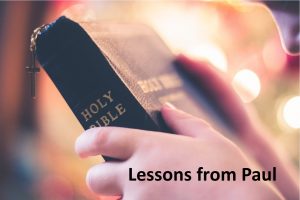At this point, I feel I need to share a bit from my experience about the differences between struggles that are relatively short-lived and trials that go on for quite some time. This is one of the biggest reasons why those of us who struggle with long term issues, have a hard time hearing from well-meaning friends how, “this too shall pass.” I wrote about this a while back and it bears repeating so I interrupt this series this week to bring you this very important article: Six Reasons Why Chronic Issues are So Different.
 When I was about to have my first child, I went to a birthing class for The Bradley Method (different philosophy, but similar idea to La Maz). The teacher said something I will always remember because it fits as a motto for so many things in life. She said, “You can stand just about anything for a short time.” She explained that when you couldn’t stand the pain a moment longer, that’s usually when the baby is born. I found that to be true.
When I was about to have my first child, I went to a birthing class for The Bradley Method (different philosophy, but similar idea to La Maz). The teacher said something I will always remember because it fits as a motto for so many things in life. She said, “You can stand just about anything for a short time.” She explained that when you couldn’t stand the pain a moment longer, that’s usually when the baby is born. I found that to be true.
I remember thinking, about that quote as I lay in the hospital bed in agony dilated to 7. The nurse said it would be HOURS yet. I was only in labor for about nine hours at that point. Most women are in labor far longer so that is what hospitals are used to. Well, they never met Speedy Tabares! So she walked out of the room saying to call her back when I felt the need to push. Well, the minute she walked out, I felt I needed to push. My husband went to go tell her and she sent him back in assuring me it would be HOURS yet and to tell me no, she’d be back in later on. I was in so much pain, I remember thinking, I could possibly take another few minutes of this, a few hours? NO! So I told him to go back to her and tell her YES! She came back in and sure enough, I was at 10. My daughter was born just a few minutes later.
You can stand just about anything for a short time, but the longer it goes on, the more the stress of it zaps your energy, your hope, your strength, your courage, your resolve, and shakes your faith.
There was a psychologist I read about who was teaching a class on stress management. She asked her class to imagine holding up a glass of water. Most of the students thought she was going to talk about the glass being half full or empty to illustrate optimism vs pessimism. However, she asked them how much they thought the glass would weigh. Many of the students gave answers, but she told them it didn’t matter. It wasn’t how much the glass weighed that was at issue; it was how long one must stand there with their arm outstretched holding it up. You see, you can stand there with your arm up holding nothing at all and, over time, your arm will grow tired. Holding it up for a minute is no big deal. While, holding it up for an hour would cause your arm to go numb and feel paralyzed. She explained that it’s the same with stress. While it may not kill you, it can destroy your quality of life.
Most chronic conditions will not kill you, but they can destroy your quality of life as the person you were is stretched and changed and limited beyond what you were and had ever envisioned for your life.
If you’re ever seen the movie Facing the Giants, you’ll remember that scene where the coach has the football player close his eyes and he coaches him a few inches at a time to eventually get him across the entire field with another man on his back. When he opens his eyes, he is amazed at how far he had come because he was certain he couldn’t make it all the way before he started. Life is like that. We can stand just about anything for a short time and then we need encouragement and inspiration one step at a time to make it to the end…or just keep making it each day as some struggles don’t have an ending this side of heaven. It’s how the old saying goes about how ones eats an elephant…one bite at a time.
There are actually six reasons why chronic issues are so different, devastating, and destructive.
1. What doesn’t kill you may, indeed, destroy your quality of life.
…and very few who have not experienced a chronic issue will truly understand this.
- Over time these experiences will change who you are. Not necessarily for the worse, but it may seem that way at first as you no longer will be able to do the things you once could. If it’s financial, you will no longer be able to afford things like luxuries (or in extreme cases even basic necessities) that you once could. If it’s health related, you will no longer be able to afford the energy to do the things you once could or loved or desire.
- Chronic issues force you to think ahead much more than you used to, to plan things ahead of time. In the case of financial matters, you will be forced to not go to dinner all month in order to be able to afford to go to a birthday dinner with friends next month. In health issues, you may need to plan to take it easy this week in order to have the energy to go out to lunch with friends next week.
- It can be increasingly frustrating not to know when, or even IF, your current crisis will end.
2. Most people will not understand.
- They’ll make comments like, “You don’t look sick.” or “I’m broke too, but I’m going to buy a nice gift for Mom. Why can’t you?” They don’t understand…”chronic illness can’t be all that bad if you look ok on the outside.” Their idea of broke may be different from yours if you can’t pay rent this month.
- Friends and family will use the words tired and exhausted interchangeably to mean they stayed up a bit too late last night and think that’s how you feel when you share why you can’t make the trip to Vegas this year. After all, they’re tired too.
I remember a time when we were so broke, we drove an hour to a grocery store because it was the only one in the area who took credit cards at the time and we had no money for milk and bread. We mentioned our financial struggles to a friend of ours who said they understood how we felt as they were down to their “last $10,000 in their bank account.” True story and, yes, they really thought they knew how we felt.
3. Feeling guilty for all the things you can’t do for others.
- For all the gifts you can’t afford to buy for your nieces and nephews…or maybe your own children
- For not being able to spend time with others who are hurting because you just can’t physically make it out to see them.
- For not being able to give money to deserving friends or family when they are in need.
- For not taking your kids out to a movie or signing them up for an extra curricular event because you don’t have the money or the energy to get them there.
- For not volunteering at church.
- For not offering to make dinner for a friend in need because you can hardly sum up the money or energy to make your own.
4. You will feel the need to push yourself beyond what you can comfortably give to others.
- and this will cause you to over extend your energy levels or financial situation beyond what it can hold.
- and this will cause you to have consequences like having to give up working the next few days to recover or give up some repair because you ran out of money before you ran out of month.
5. Getting angry or defensive when challenged.
- and you will be challenged. You may find yourself having to explain to the very same relative why you can’t come to the big shindig next year in Tahiti even though they were able to save up for it this year.
- Explaining for the 20th time how you may have to cancel lunch for the third time because you just don’t feel up to it today even though you did feel up to cleaning the house yesterday.
6. You may find your faith eroding as you wonder why God hasn’t healed you.
- because He did heal So and So
- You’ll wonder if God really cares for you if He is willing to leave you in this trial all this time.
- You may wonder why me? What did I do to deserve this?
- You may wonder if God is really there at all.
Proverbs 17:22 says, “A merry heart doeth good like a medicine: but a broken spirit drieth the bones.” It’s so important in our struggles that I put it up on the top of this blog. You see, we can get down in the valley after a while such that we have a hard time pulling ourselves out. That’s when we need others to help us up.
John 14:18 says, “I will not leave you comfortless: I will come to you.” Just knowing that someone understands what you’re going through and justifies your feelings about what you are dealing with can help pull you out of the valley. And that’s why I’m here.
I am not a doctor or a financial wiz kid. God may not choose to heal you or put an end to your financial struggles, but I can help you pull yourself out of the valley so you can begin to see the joy and live a life beyond surviving!




 So ends the Paul vs Job series here on Life Beyond Surviving, but I didn’t want to let you go without giving you some more “joy” resources. You see, I’ve been writing about this topic for quite some time. I started over on my JoJoisms blogsite. I’ve been transferring my most popular articles over to this site, but I’ve written so much that it’s not easy. It takes quite a bit of time so I’ve been doing them in bunches as these topics arise.
So ends the Paul vs Job series here on Life Beyond Surviving, but I didn’t want to let you go without giving you some more “joy” resources. You see, I’ve been writing about this topic for quite some time. I started over on my JoJoisms blogsite. I’ve been transferring my most popular articles over to this site, but I’ve written so much that it’s not easy. It takes quite a bit of time so I’ve been doing them in bunches as these topics arise. When I first began looking for how to have joy in the midst of struggles, I found lots of references to joy in suffering though I didn’t find exactly how we were to do that. I felt at this point in the series, I’d share some of what I found. I think it helps us to know that others found joy in the midst of suffering, struggles, and trials. And it helps to read the words that share that joy in the scriptures.
When I first began looking for how to have joy in the midst of struggles, I found lots of references to joy in suffering though I didn’t find exactly how we were to do that. I felt at this point in the series, I’d share some of what I found. I think it helps us to know that others found joy in the midst of suffering, struggles, and trials. And it helps to read the words that share that joy in the scriptures. Going through difficult times sure doesn’t feel good. Often we don’t have any idea why or how any good could come of it, but the Bible speaks about the lessons and benefits we can gain from suffering. I have found seven of them that helped bring my own struggles into focus.
Going through difficult times sure doesn’t feel good. Often we don’t have any idea why or how any good could come of it, but the Bible speaks about the lessons and benefits we can gain from suffering. I have found seven of them that helped bring my own struggles into focus. When I was about to have my first child, I went to a birthing class for The Bradley Method (different philosophy, but similar idea to La Maz). The teacher said something I will always remember because it fits as a motto for so many things in life. She said, “You can stand just about anything for a short time.” She explained that when you couldn’t stand the pain a moment longer, that’s usually when the baby is born. I found that to be true.
When I was about to have my first child, I went to a birthing class for The Bradley Method (different philosophy, but similar idea to La Maz). The teacher said something I will always remember because it fits as a motto for so many things in life. She said, “You can stand just about anything for a short time.” She explained that when you couldn’t stand the pain a moment longer, that’s usually when the baby is born. I found that to be true. So last week we looked at the lessons we can learn from Job about being in trial. This week, I’m sharing the lessons I feel we can learn from Paul.
So last week we looked at the lessons we can learn from Job about being in trial. This week, I’m sharing the lessons I feel we can learn from Paul. You might be asking yourself why I’m starting with Job when the title says Paul vs Job. The answer is simple. Much more is written about Job and suffering than is written about Paul so it’s going to take me more time to gain a bit of insight into the lessons Paul has for those who struggle and, since it’s my blog…[sticks tongue out]
You might be asking yourself why I’m starting with Job when the title says Paul vs Job. The answer is simple. Much more is written about Job and suffering than is written about Paul so it’s going to take me more time to gain a bit of insight into the lessons Paul has for those who struggle and, since it’s my blog…[sticks tongue out] I’ve always been frustrated by well-meaning Christians who quote Job when someone is struggling in trial. It frustrates me mostly because I remember being deep in trial, overwhelmed, and frustrated at something that had been going on for years and would continue for the foreseeable future. My chronic health issues are incurable. They can be managed (and at present, they are managed fairly well), but they are not something I expect will go away. In fact, the older I get, the more difficult they become.
I’ve always been frustrated by well-meaning Christians who quote Job when someone is struggling in trial. It frustrates me mostly because I remember being deep in trial, overwhelmed, and frustrated at something that had been going on for years and would continue for the foreseeable future. My chronic health issues are incurable. They can be managed (and at present, they are managed fairly well), but they are not something I expect will go away. In fact, the older I get, the more difficult they become.